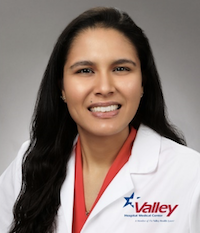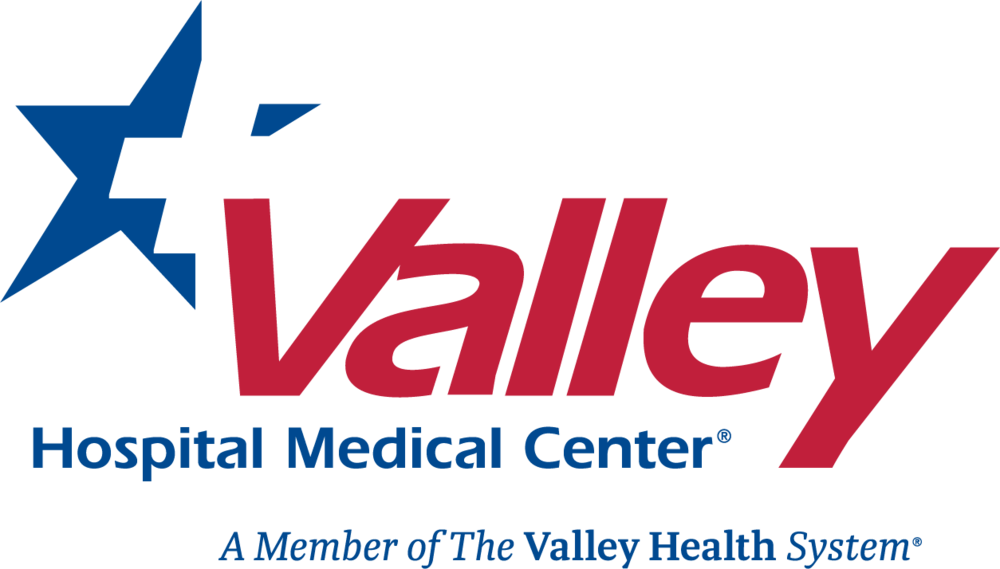Faculty
Pharmacy Administration
Zephanye L. Sistrunk, BS, PharmD, BCGP
Director of Pharmacy/Pharmacy Program Director
Pharmacy School
Florida A&M University, Tallahassee, Florida
Learning Experience Overview: In the Pharmacy Administration Rotation, the resident will enhance his/her skills and understanding of the health system organization and the role of the pharmacy in meeting the goals of the organization. The resident will gain skills in the financial operations, personnel operations, clinical programs and medication use process.
The resident will also gain leadership experience to bridge clinical practice and management and effectively understand and analyze fiscal proposals, human resources needs, service line development, staff development and the importance of policies and procedures.
Jennifer M. Rogers, PharmD
Assistant Director of Pharmacy
Pharmacy School
Midwestern University, Downers Grove, Illinois
Learning Experience Overview: A formal orientation program for all residents will be scheduled as a learning experience during the first month of residency. Residents will be introduced to the Department of Pharmacy, Pharmacy Staff, Roseman College of Pharmacy Faculty and the hospital. Residents will be oriented to the residency program and will review the program's purpose, applicable accreditation regulations and standards, learning experiences and evaluation process.
The resident will attend both a Valley Health System general orientation and Valley Hospital specific orientation and will meet with the appropriate human resources contacts. Residents will be familiarized with the department's policies and procedures and drug distribution service. Time will be dedicated to train the residents on the operations of the department including the skills needed to successfully fulfill the staffing requirements. An initial self-evaluation will be reviewed with each resident.
The service commitment or staffing learning experience is a three-month required longitudinal learning experience where the resident will develop foundational practice skills in hospital practice. The resident will work in the main pharmacy and is expected to provide comprehensive pharmaceutical services through drug distribution and clinical services such as dosing vancomycin. The resident will learn the essentials of inpatient pharmacy, its workflow and operations. The resident will be expected to be familiar with automated central distribution, narcotic distribution and management, medication order verification, TPN order processing, drug information, intravenous admixture and dispensing.
Preceptors
 Peter Bautista, PharmD, BCPS, MBA
Peter Bautista, PharmD, BCPS, MBA
Critical Care Clinical Pharmacy Specialist
Pharmacy School
Roseman University of Health Sciences, Henderson, Nevada
Professional Interests
Critical care, emergency medicine, infectious disease
Personal Interests
International travel, cooking, auto and household DIY, finance, basketball, hiking, camping, fishing
Learning Experience Overview: The critical care learning experience includes, but is not limited to, interdisciplinary rounds to optimize patient care. The resident will assess and evaluate the clinical course of ICU patients and will proactively initiate evidence-based interventions in pharmacotherapy, anticoagulation, hemodynamics, renal and hepatic adjustments, formulary interchanges, and various disease states. In addition, the resident will collaborate with nursing staff, medical students, pharmacy students and other allied health professionals to assist in patient care plans. Aside from the clinical component, the resident will participate in staff development, workflow optimization, inter-departmental education and longitudinal projects to gain a broad perspective of the roles and responsibilities of pharmacists in an institutional setting.
 Selina M.K. Dang, PharmD, BCPS
Selina M.K. Dang, PharmD, BCPS
Emergency Medicine Clinical Pharmacist
Pharmacy School
Roseman University of Health Sciences
Post-Graduate Training
Valley Hospital Medical Center, Las Vegas (PGY-1 Pharmacy Practice Residency)
Professional Interests
Emergency medicine
Personal Interests
Reading and spending time with family
Learning Experience Overview: The Emergency Room experience is a month-long learning experience at Valley Hospital. The resident fulfills drug distribution duties by delivering medications when needed, verifies orders, monitors patient's drug therapies and provides drug information when needed. Daily clinical responsibilities include, but are not limited to, antimicrobial stewardship, drug dosing and monitoring, pharmacokinetics, pain/agitation/delirium management, anticoagulation, participating in code situations and hemodynamic support.
Daniel Delnero, PharmD
Emergency Medicine Clinical Pharmacist
Pharmacy School
University of the Pacific, Stockton, California
Professional Interests
Critical care and emergency medicine
Personal Interests
Golf and woodworking
Learning Experience Overview: The Emergency Room experience is a month-long learning experience at Valley Hospital. The resident fulfills drug distribution duties by delivering medications when needed, verifies orders, monitors patient's drug therapies and provides drug information when needed. Daily clinical responsibilities include, but are not limited to, antimicrobial stewardship, dosing and monitoring, pharmacokinetics, pain/agitation/delirium management, anticoagulation, participating in code situations and hemodynamic support.
 Kristine Ha, PharmD, BCCCP
Kristine Ha, PharmD, BCCCP
Critical Care Clinical Pharmacy Specialist
Pharmacy School
University of Colorado
Professional Interests
Critical care, NICU
Personal Interests
Traveling, skiing, time with family
Learning Experience Overview: The critical care learning experience includes, but is not limited to, interdisciplinary rounds to optimize patient care. Dr. Ha is one of two preceptors for this learning experience. See details above as listed under Dr. Peter Bautista.
Jennifer Kidd, PharmD, BCPPS
Neonatology and Pediatric Clinical Pharmacy Specialist
Pharmacy School
Howard University College of Pharmacy, Washington, DC
Midwestern University, Downers Grove, Illinois
Professional Interests
NICU, general pediatrics and infectious disease
Personal Interests
Vegas Golden Knights hockey, movies, travel, cooking and spending time with family
Learning Experience Overview: Pediatrics (PEDS) and Pediatric Intensive Care Unit (PICU) is an elective, monthlong learning experience at the Children's Medical Center at Summerlin Hospital. The Children's Medical Center provides care to infants, children, adolescents and teenagers and includes a PICU with 12 beds and a general Pediatric Unit with 46 rooms. Other pediatric services include the pediatric ER.
Neonatology is an elective, monthlong learning experience at the Children's Medical Center at Summerlin Hospital. The Children's Medical Center includes a neonatology intensive care unit (NICU), also known as a Level III Nursery, which is the highest level of nursery care for newborns. Summerlin Hospital recently expanded its Level III NICU adding additional beds and advanced technology, making it one of the largest NICUs in the state of Nevada.
Jun Wen Lin, PharmD, BCPS, BCOP
Hematology/Oncology Clinical Pharmacy Specialist
Pharmacy School
Long Island University, Brooklyn, New York
Professional Interests
Acute leukemia, lymphoma, stem cell transplant, and infectious diseases in immunocompromised hosts
Personal Interests
Hiking, swimming and cooking
Learning Experience Overview: This is a four-week elective oncology learning experience for PGY-1 residents which will take place at Summerlin Hospital Cancer Center serving both adult and pediatric patients with hematologic and oncologic malignancies. The oncology rotation will give residents the opportunity to develop knowledge of the complex pharmaceutical care for patients with cancer.
The resident will gain experience with chemotherapy regimens for adult and pediatric as well as the supportive care provided to these patients. At the end of this rotation, pharmacy residents are expected to be proficient at chemotherapy order verification and safe compounding of hazardous medications.
Leonor M. Rojas, PharmD, BCPS, BCIDP
Clinical Pharmacy Specialist in Antimicrobial Stewardship
Pharmacy School
Roseman University of Health Sciences, Henderson, Nevada
Post-Graduate Training
University Medical Center of Southern Nevada (PGY-1)
Professional Interests
Infectious diseases
Personal Interests
Yoga and hiking
Learning Experience Overview: Antimicrobial Stewardship (ASP) is a required, monthlong learning experience at Valley Hospital. The service evaluates antimicrobial therapy on all patients currently hospitalized. On a daily basis, the resident will be responsible for assessing all the patients in the ICU, patients on days 2-3 of antibiotics, and patients receiving any of the six restricted antibiotics (daptomycin, ceftaroline, linezolid, tigecycline, ertapenem and micafungin) via MUEs.
Roseman University of Health Sciences Faculty
Kaylee Putney, PharmD, BCCCP, BCPS, MBA
Assistant Professor of Pharmacy Practice; Core Faculty
Pharmacy School
Roseman University of Health Sciences, Henderson, Nevada
Post-Graduate Training
Valley Hospital Medical Center, Las Vegas (PGY-1 Pharmacy Practice Residency)
Professional Interests
Critical care, academia
Personal Interests
Sports, fitness and food
Learning Experience Overview: The critical care rotation will primarily involve optimization of pharmacotherapy for all patients on the assigned ICU service. The pharmacy resident will serve as the pharmacist on a pulmonary/critical care medicine interdisciplinary team. Clinical responsibilities include, but are not limited to, antimicrobial stewardship, dosing and monitoring, pharmacokinetics, ensuring appropriate use of stress ulcer prophylaxis, pain/agitation/delirium management, anticoagulation, and hemodynamic support.
In addition, pharmacy residents are expected to play an active role in scenarios of cardiac arrest ("code blue") and rapid sequence intubation (RSI), when and if the opportunity arises. The resident will also ensure appropriate transitions of care by communicating directly with other pharmacy services including antimicrobial stewardship and internal medicine services.
Evan Williams, PharmD, MBA, BCPS, BCACP
Associate Professor of Pharmacy Practice; Core Faculty
Pharmacy School
University of Arizona, Tucson
Post-Graduate Training
Phoenix VA Health Care System, Phoenix (PGY-1)
Professional Interests
Trainee wellbeing, assessment, literature evaluation
Personal Interests
Cooking/grilling, playing music, family
Learning Experience Overview: The Academic Teaching and Practice elective is an in-depth, monthlong learning experience with faculty at Roseman University of Health Sciences College of Pharmacy, designed to immerse residents in the day-to-day tasks of clinical faculty and develop skills essential for success as future clinical faculty members.
Internal Medicine (IM) is a required, monthlong learning experience at Valley Hospital. Dr. Williams is one of two preceptors for this learning experience. See below for more details as listed under Dr. Alana Whittaker.
Alana Whittaker, PharmD, BCPS,  BCGP
BCGP
Associate Professor of Pharmacy Practice; Core Faculty
Pharmacy School
Howard University, Washington, D.C.
Post-Graduate Training
Sentara Healthcare, Norfolk, Virginia (PGY-1 Pharmacy Practice); Seton Family of Hospitals/University of Texas at Austin (PGY-2 Internal Medicine)
Professional Interests
Diabetes, asthma, COPD and statistics
Personal Interests
Reading, cooking, watching crime shows and volunteering
Learning Experience Overview: Internal Medicine (IM) is a required, monthlong learning experience at Valley Hospital. There are 300 beds in the hospital and four IM teams to cover the patients, three of which are teaching teams. Each of the teaching teams includes an attending physician, R1 medical residents, R2/3 medical residents, MS3/4 medical students, pharmacy students and a case manager. Typically, the IM teams will be responsible for 20-35 patients each.
The Pharmacy Resident on the IM rotation will ensure safe and effective medication use for all patients admitted to the team. Routine responsibilities include reconciling medications, conducting therapeutic drug monitoring, making antimicrobial stewardship recommendations, and optimizing medications for discharge planning. The resident will also provide drug information and education to healthcare professionals as well as patients and caregivers.
